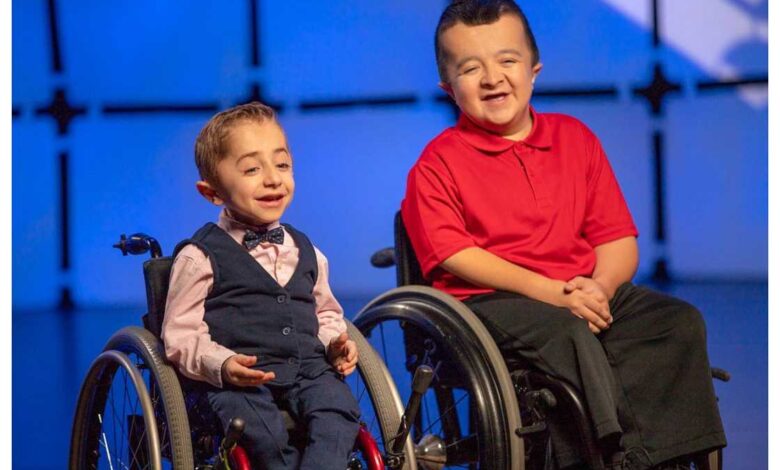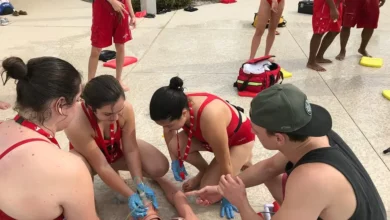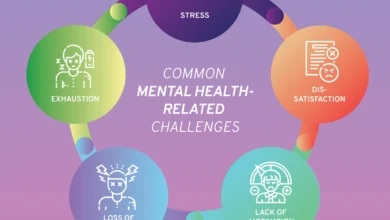
Alec Cabacungan and Kaleb-Wolf De Melo Torres are two of the most recognizable faces in Shriners Hospitals for Children commercials. Their inspiring stories, upbeat personalities, and heartfelt appeals have captured the attention of millions across the United States. Many people wonder, “Do Alec and Kaleb get paid for commercials?” This question has been circulating in discussions regarding child actors, ethics in advertising, and charitable causes. In this article, we’ll explore this question in detail, while also addressing some key factors surrounding compensation for individuals in charitable advertisements.
Table of Contents
ToggleWho Are Alec and Kaleb?
Before we dive into the question of compensation, it’s essential to understand who Alec and Kaleb are and why they are so well-known. Both boys have been long-time patients of Shriners Hospitals for Children, a network of non-profit medical facilities across North America that provides specialized pediatric care for children with orthopedic conditions, burns, spinal cord injuries, and more.
Alec Cabacungan, born with osteogenesis imperfecta (a condition that causes brittle bones), first appeared in Shriners’ commercials when he was just 12 years old. Alec’s charisma, courage, and energy have made him a beloved spokesperson for the organization.
Kaleb-Wolf De Melo Torres, diagnosed with brittle bone disease like Alec, also began appearing in commercials for Shriners Hospitals at a young age. His cheerful demeanor and candid approach to sharing his experience have made him another favorite among viewers.
Both Alec and Kaleb’s stories emphasize resilience, the importance of medical care, and the role of Shriners Hospitals in their ability to lead active lives despite their conditions. Their television presence serves both to raise awareness about the hospital’s mission and to encourage donations to support its services.
Do Alec and Kaleb Get Paid for Commercials?
The primary question at hand is whether Alec and Kaleb receive compensation for their appearances in Shriners Hospitals commercials. The commercials, which are broadcast across various media channels, feature them sharing personal experiences and encouraging people to donate to the hospitals. So, do these child ambassadors get paid for their work?
According to publicly available information, Alec and Kaleb, as well as other child ambassadors for Shriners Hospitals, do not receive traditional pay for their participation in the commercials. Their involvement is framed as part of their advocacy for the hospital and its mission, and any compensation is often in the form of support, treatment, and care that the hospital provides them as patients. This is not uncommon for non-profit organizations, especially those with a mission of helping people in need.
Legal and Ethical Considerations in Child Ambassador Programs
The question of whether child ambassadors like Alec and Kaleb should be paid is not just a financial one—it touches on broader legal and ethical concerns. Child actors in commercial advertisements are typically protected by specific laws to ensure they are fairly compensated for their work. However, the situation becomes more complicated when it comes to non-profit organizations, particularly those in the healthcare or charitable sector.
- Fair Compensation: While Alec and Kaleb may not receive direct financial compensation, their medical care is often provided at no cost to them, which can be considered a form of compensation. The ethical concern here is whether this is a fair trade, given the level of exposure and the potential fundraising impact their commercials generate.
- Child Labor Laws: In the United States, there are strict child labor laws that govern the employment of minors in the entertainment industry. These laws vary from state to state but generally include requirements for compensation, education, and working conditions. Since Alec and Kaleb are technically not “employees” of Shriners Hospitals, their participation in the commercials falls into a gray area that does not necessarily require payment under child labor laws.
- Informed Consent and Representation: When minors participate in advertising or marketing campaigns, questions often arise about informed consent. In Alec and Kaleb’s case, their families and legal guardians likely consented to their participation, but this raises questions about how much agency the children themselves have in these decisions. Additionally, it’s essential to ensure that children like Alec and Kaleb are not exploited or used purely for profit, even if the cause is charitable.
The Role of Non-Profit Organizations in Compensation
In many cases, non-profit organizations rely on volunteers or individuals willing to donate their time and services to the cause. While for-profit corporations are expected to compensate their employees and actors, non-profits often operate under different guidelines. In the case of Shriners Hospitals for Children, the organization’s primary mission is to provide free or low-cost healthcare to children with serious conditions. The funds raised through commercials featuring Alec and Kaleb go directly to supporting this mission, which could explain the decision not to offer traditional compensation for their appearances.
Furthermore, Alec and Kaleb are more than just faces in a commercial; they are long-term patients of the hospital who have personally benefited from its services. Shriners Hospitals have provided them with treatment and medical care for years, which is something families of children with chronic conditions might otherwise struggle to afford. This dynamic complicates the discussion of compensation, as the benefits they receive are not purely financial but rather lifesaving medical support.
Do Other Child Actors in Non-Profit Commercials Get Paid?
Alec and Kaleb are not the only children to appear in commercials for non-profit organizations. Other hospitals, charities, and advocacy groups frequently use child ambassadors to help raise awareness and funds for their causes. Whether these children get paid can vary widely depending on the organization and its policies.
For example, St. Jude Children’s Research Hospital is another well-known institution that uses child patients in its commercials. There is little public information available on whether the children featured in these ads receive payment, but like Shriners, the focus is often on the hospital’s role in providing free care and the children’s willingness to share their stories.
In contrast, for-profit companies that use child actors in their advertisements are generally required to pay them according to industry standards. This includes compensation not just for the child’s appearance but also for any additional use of their image, such as in print or online advertising.
The Impact of Alec and Kaleb’s Commercials
The commercials featuring Alec and Kaleb have been extremely successful in raising awareness and driving donations for Shriners Hospitals. These ads appeal to the emotions of viewers by showcasing real stories of resilience and recovery. But beyond fundraising, Alec and Kaleb’s appearances have also sparked important conversations about the role of patients in non-profit advertising and the ethical considerations surrounding compensation.
- Increased Donations: The emotional appeal of Alec and Kaleb’s stories has been credited with helping Shriners Hospitals increase its donations significantly over the years. Viewers often feel a personal connection to these boys and are moved by their stories to contribute to the hospital’s mission.
- Awareness and Education: The commercials have also played a vital role in educating the public about rare conditions like osteogenesis imperfecta. Many people who had never heard of brittle bone disease are now more informed thanks to Alec and Kaleb’s advocacy.
- Inspiration for Others: Alec and Kaleb’s courage has inspired countless others, both children and adults, who may be facing medical challenges of their own. Their visibility and willingness to share their stories show that even with significant health issues, it’s possible to lead a fulfilling life.
Are Alec and Kaleb Considered Volunteers?
Given that Alec and Kaleb do not receive traditional compensation, some might consider their participation in Shriners’ commercials as a form of volunteering. In the non-profit sector, volunteers are often individuals who donate their time and effort to support a cause without expecting financial rewards. While Alec and Kaleb are clearly passionate about the hospital’s mission, the fact that they are patients complicates this definition.
Technically, Alec and Kaleb are not formal volunteers since they have a personal connection to the hospital, and their participation is not entirely altruistic. They are, in a sense, giving back to the hospital that has provided them with life-changing care. However, it’s important to distinguish between voluntary participation and the kind of structured volunteerism that many non-profits rely on for their operations.
The Public’s Perception of Alec and Kaleb’s Compensation
Public opinion on whether Alec and Kaleb should be paid for their participation in commercials is divided. On the one hand, many people believe that because Alec and Kaleb are contributing to a charitable cause, they should not necessarily expect financial compensation. After all, their commercials are raising money for the hospital that has provided them with medical care.
On the other hand, some argue that Alec and Kaleb should be compensated for their time and the significant impact their appearances have had on the hospital’s fundraising efforts. Commercials featuring Alec and Kaleb are broadcast nationwide, reaching millions of people, and generating substantial revenue for the hospital. From this perspective, it seems only fair that they should receive some form of payment, even if it’s modest compared to what a professional child actor might earn for a similar role.
Final Thoughts
So, do Alec and Kaleb get paid for commercials? While they do not receive direct financial compensation, the benefits they gain from their association with Shriners Hospitals for Children are immense. Their medical care, provided by the hospital, is arguably one of the most significant forms of compensation they could receive. However, this raises ethical questions about the role of child ambassadors in non-profit advertising and whether additional compensation should be considered, given the commercial success of their campaigns.
The discussion surrounding Alec and Kaleb’s compensation is a complex one, intertwined with issues of fairness, ethics, and the unique nature of non-profit organizations. While they may not be paid in the traditional sense, their contributions to Shriners Hospitals have undoubtedly made a lasting impact—both on the institution and on the countless individuals inspired by their stories.
Questions and Answers
**Q: Do Alec and Kaleb get paid for their work in Sh





